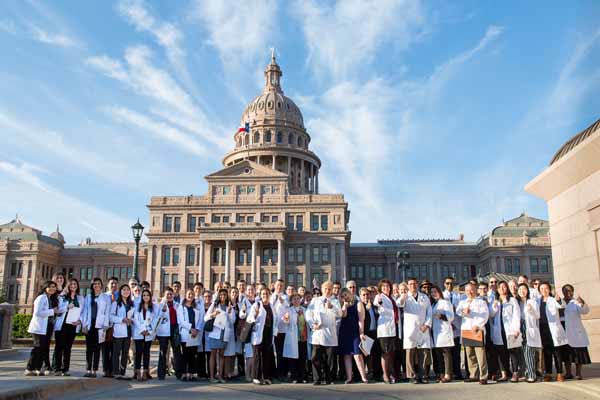
The Texas Legislature’s distribution of billions in federal COVID-19 relief funding displayed a commitment to many – though not all – of the Texas Medical Association’s desired uses for the money, including investments in child mental health care and improving maternal mental health access.
More than $16 billion was available, but the House of Medicine was competing for its share with requests from many other interest groups. Before adjourning its third special session of the year last week, the legislature allocated about $13 billion in relief funding from the American Rescue Plan Act to various programs and initiatives, with the rest going to property tax relief.
Health-care-related initiatives received millions in distributions, including:
- $378 million for one-time grants for frontline health care workers affected by COVID-19 (including $200 million for nursing);
- $237.8 million to complete construction of a state psychiatric hospital in Dallas, improving mental health care access;
- $113 million for the Texas Child Mental Health Care Consortium to support the expansion and operations of mental health services through that program;
- $75 million for grants to support rural hospitals affected by the pandemic; and
- $20 million to create a consolidated internet portal for Medicaid and the Children’s Health Insurance Program.
Helen Kent Davis, TMA’s associate vice president of governmental affairs, says on balance, the legislature funded some extremely constructive proposals. Part of the funds for the Child Mental Health Consortium, for example, will allow the state to move forward with another of TMA’s asks, a maternal version of the Child Psychiatry Access Network.
The challenge with the relief funds overall, however, is that they’re one-time expenditures that can only be spread over the coming biennium, says John Carlo, MD, chair of TMA’s Council on Legislation.
“We’ve got some sense that there looks to be some very important funding allocations in this, particularly around some of the health services and laboratory [funding],” he added. “If you were to ask me maybe what was missing, we had talked about a kind of more central program looking at long-COVID treatment and offering some mechanism … to look at how we’re going to address the long-term health needs for Texans who are recovering from COVID, and perhaps leveraging the health science centers to create centers for research to do those types of things.”
TMA had asked for grant funding to support the establishment of physician-led multidisciplinary clinics to treat people with long COVID, and for a long-COVID research center within at least one academic health center.
“That’s something we would have liked to have seen, given I think what we’ll see in the long-term, which is some pretty substantial number of people that will have long-term health consequences,” Dr. Carlo said.
TMA will continue to push for its other priorities during the interim period, Ms. Davis added. That includes continuing to make the case for long-COVID funding.
“You had $16.3 billion to allocate and at least three times that in requests submitted to the legislature,” she said. “I do think that lawmakers will have a growing appreciation of the impact of long COVID, and we can make the case during the interim that those are things that need to be funded.”